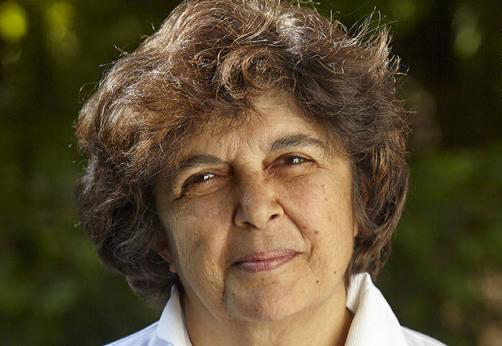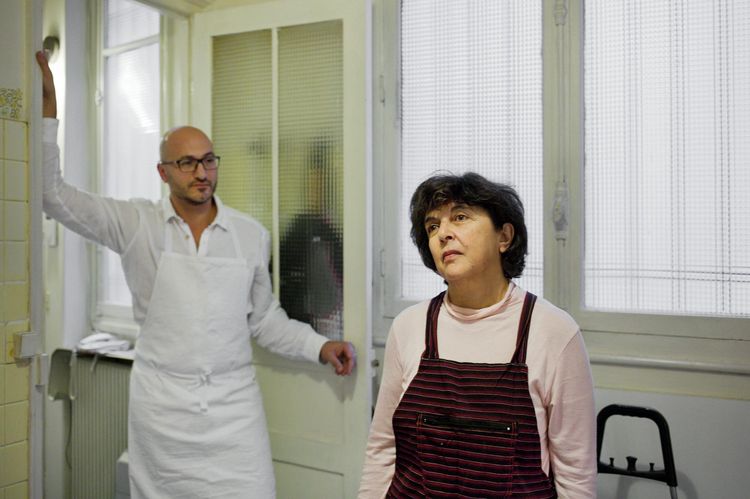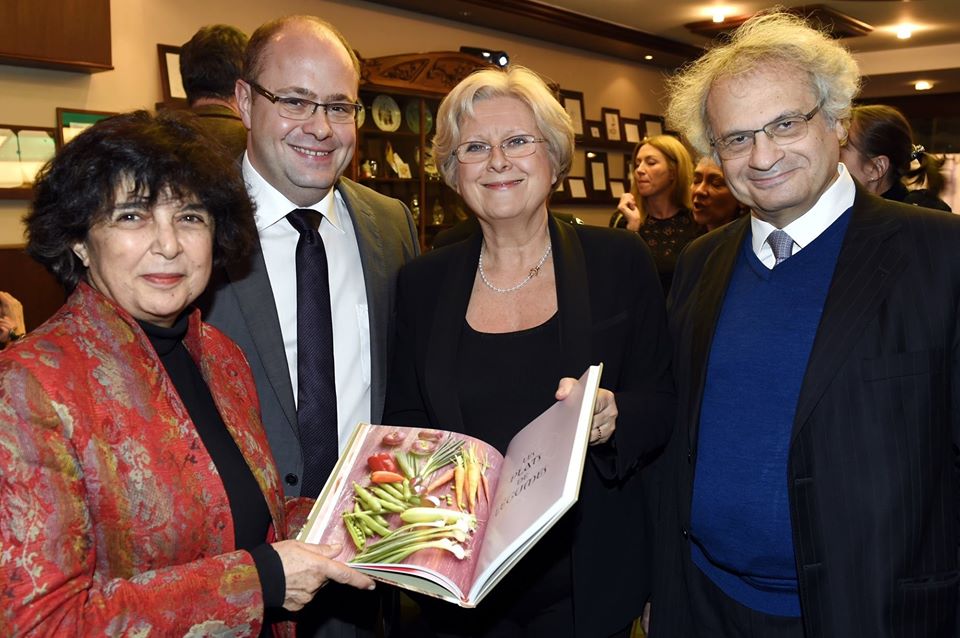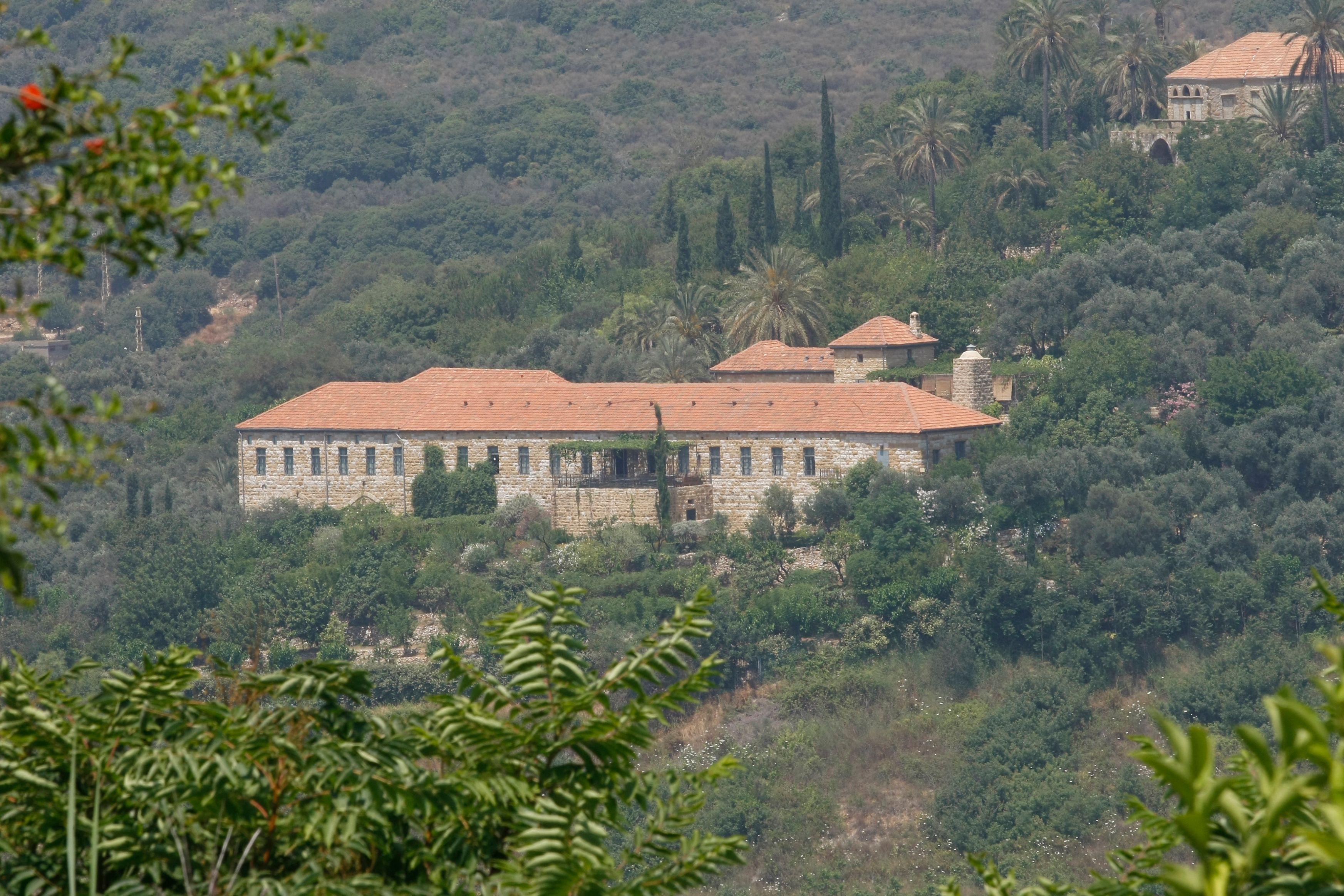Passionate Lebanese foodie Andrée Maalouf has been living in France for 30 years, but her favorite place in the world remains the family terrace in Lebanon’s Aïn El Abou, overlooking the sea. Elsa Yazbek Charabati catches up with her, following the release of Maalouf’s cookbook “Saveurs Libanaises” and discovers a strong connection to Lebanon’s cuisine.

Photo – Loic Nicoloso
After the bestseller “Cuisine Libanaise d’Hier et d’Aujourd’hui,” you’ve written a new cookbook, “Saveurs Libanaises.” Tell us more about your gastronomic journey.
When Karim Haïdar and I wrote our first book, we wanted to gather the classics of Lebanese gastronomy, as well as the dishes we found particularly interesting. But Lebanese food is a great cuisine with a wide and varied repertoire. We had to put aside many recipes, not without regret. Throughout the years, readers didn’t stop asking: why did you set aside the shish barak, or the moghrabiyeh, or this or that dessert that had accompanied our childhood? A second book was a must.
What inspired you to write”Saveurs Libanaises?”
One of the ideas that guided our work was searching for old or regional recipes, such as kebbet banadoura, so typical in south Lebanon.

Karim Haidar and Andrée Maalouf. Photo – Remy Artiges
What is your favorite Lebanese flavor?
I like the flavor of zaatar (thyme) and black olives with tomatoes, as a souvenir of my childhood, in an arousse — Arabic for sandwich.
Can you share with us any of your family’s secret recipes?
Shish barak was my mom’s favorite recipe. She used to prepare the pastry herself and cut it into rings that she filled with meat.
How important is it for the diaspora to pass on Lebanese culinary traditions from one generation to the next?
Cuisine is one of the rare things that unite us; that we love and openly share with others wherever they are. It is the symbol of the nurturing mother and part of our most beautiful childhood memories. And when you’re away from your homeland, you miss it badly, until it becomes indispensable. Moreover, it is a great cuisine that reflects a nice image of our country.
 What is your connection to Lebanon?
What is your connection to Lebanon?
My connection to Lebanon is permanent. I carry it in my heart and live in nostalgia.
How do you convey this love to your three sons?
I think that it happened naturally. Their father [editor’s note: famous Lebanese writer Amin Maalouf] and I have always been proud of our belonging and have been living in France with a permanent feeling of having an added wealth: our Lebanese origins.
Where do you love most in Lebanon?
Bsous, my village, where I used to spend my summer vacations throughout my childhood and youth and where my mum and dad are from. I also like Aïn el Abou, Amin’s village, a place that I loved the moment I set foot in.
 Your husband writes great books about Lebanon and you write about the cuisine. Is it your way of expressing your passion and nostalgia for your homeland?
Your husband writes great books about Lebanon and you write about the cuisine. Is it your way of expressing your passion and nostalgia for your homeland?
I think that it is his way and mine of carrying Lebanon in our hearts. It is always present with the image we like to give of it.
Loading


 What is your connection to Lebanon?
What is your connection to Lebanon? Your husband writes great books about Lebanon and you write about the cuisine. Is it your way of expressing your passion and nostalgia for your homeland?
Your husband writes great books about Lebanon and you write about the cuisine. Is it your way of expressing your passion and nostalgia for your homeland?